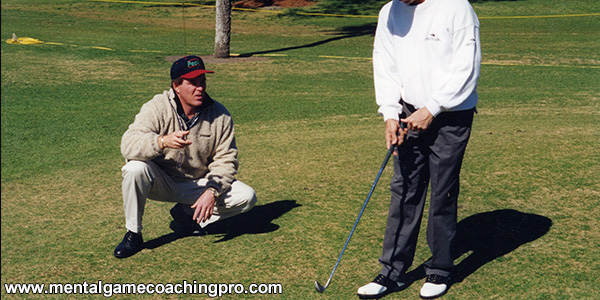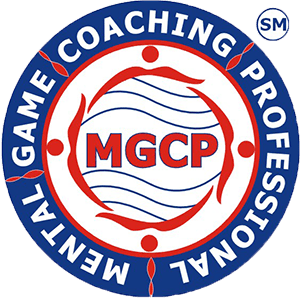
Use Preshot Routines to Improve Consistency
I was asked the following question by a recent MGCP graduate about routines…
“How do you explain, in concrete words to athletes, how a preshot routine helps performance versus superstitions?”
Do your athletes have to eat the exact same meal for good luck prior to competition like Wade Boggs did?
Do you athletes have to wear their lucky white shoes or shirt or socks in competition?
Superstitions are behaviors or rituals athletes repeat prior competition in the hope of bringing good luck.
Most superstitions are irrational and not based in reality or science.
They give athletes a sense of luck, but some athletes and coaches would say that superstitions also give them confidence and belief.
Most superstitions are just habits that have no scientific research to back up the claim that they actually work.
On the other hand, preshot routines are overt and covert behaviors athletes perform prior to a self-paced skill.
For example, preshot routines are used to prepare for a golf shot, basketball free throw, field goal, pitch, race motto, dive, gymnastics routine, or any other sports tasks.
The purpose of routines is to help athletes be focused, confident, make good decisions, and trust their skills.
Unlike superstitions, routines help improve consistency in performance for athletes. They are based on science and not on good luck or over generalizations.
When superstitions fail to work, athletes tend to discard their rituals and look for something else to bring them luck.
What’s wrong with taking “luck” into competition? Don’t your athletes feel more confident when lucky?
The problem is that athletes have no control over luck. Superstitions are a false association to something that’s worked for them in the past to bring about good performances.
You instead want to encourage your athletes to buy into routines, not superstitions or rituals. The problem is that athletes are a superstitious group in general.
Preshot Routines Are:
- Based on science, not luck.
- Useful for helping athletes organize their thinking.
- Great for mental preparation in stop and go sports.
- Needed to enhance consistency of performance.
- An excellent way to integrate mental skills into performance.
In the MGCP program, we discuss how athletes can integrate mental skills into their performance by using routines. This makes mental training more concrete for athletes and less abstract.
Anytime you can apply mental skills to performance in practice or games, you are helping your athletes improve the usefulness of mental training.
Related Mental Coaching Articles:
- Become a Mental Coach or Sports Psychologist
- Is Lack of Consistency a Focus Problem?
- Helping Athletes Apply Mental Game Lessons
Apply To Be In The MGCP Program!
Upon acceptance into the Mental Game Coaching Professional (MGCP) program, you’ll be given assess to the MGCP documents and to the peaksportsnetwork.com membership web site, start dates and times of each video conference, and how to access the video conference.
The MGCP video conference certification program is taught by video conference over a period of 10 weeks, meeting for two hours each week, but the course can take up to 12 weeks to complete (due to holidays and such).
By the end of the certification program (provided you have completed all requirements for graduation), you will receive a certification from Peak Performance Sports, LLC as a certified Mental Game Coaching Professional!
Have questions about the MGCP program? Read our FAQ. Find out what is included in the MGCP program. Call 888-742-7225 or email us at Peak Performance Sports
